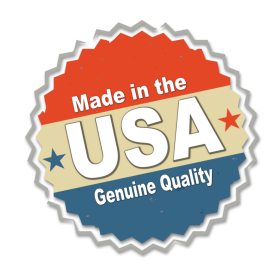Despite the existence of long-standing U.S. laws strongly favoring the purchase of domestic products for use by governmental entities, in governmental programs and particularly the fulfillment of Department of Defense (“DoD”) contracts, a surprising number of companies still attempt to circumvent these laws. They do so at their own peril. Recognizing the harm likely to befall American workers as a result, an increasing number of employees and former employees have “blown the whistle” on these practices in recent years and teamed up with the U.S. Government to curtail this trend.
The Buy American Act, 41 U.S.C. §§ 8301–8305, (“BAA”) was enacted in 1933 under President Hoover as part of legislation intended to help struggling American depression era companies. The BAA superseded an 1875 statute that “related to preferential treatment of American material contracts for public improvements.” (1933, Sect. 10). The law carried with it a very simple idea: require the government to exercise a clear preference for US-made products in its purchases to bolster the American economy.
To this day, the BAA continues to require federal agencies to purchase “domestic end products” and use “domestic construction materials” in contracts exceeding certain dollar amounts performed in the United States. Unmanufactured end products or construction materials qualify as “domestic” if they are mined or produced in the United States. Manufactured products are treated as “domestic” if they are manufactured in the United States, and either (1) the cost of components mined, produced, or manufactured in the United States exceeds 50% of the cost of all components, or (2) the items are commercially available off-the-shelf items.
Exemptions and exceptions to the applicability of the BAA exist. For example, the BAA does not apply if the purchasing agency determines “it to be inconsistent with the public interest, or the cost to be unreasonable.” Furthermore, the U.S. Trade Agreements Act of 1979 authorizes the President to waive any procurement law or regulation that accords foreign products less favorable treatment than that given to domestic products in foreign lands. Additionally, purchases from Canada and Mexico are exempt from BAA prohibitions under the North American Free Trade Agreement. Other treaties and agreements also limit the BAA. Despite these, the BAA continues to cast a wide liability net for those that seek to willfully or knowingly circumvent it.
Similar to the BAA, the Berry Amendment was passed in 1941 to promote the U.S. economy through the preferential purchase of certain U.S. goods. The Amendment was eventually codified as 10 U.S.C. 2533a in 2002. The law prohibits the Department of Defense (“DoD”) from utilizing any funding available to or appropriated by the DoD for the purchase of the following end product items from “non-qualifying countries” unless these items are wholly of U.S. origin: food; clothing; tents, tarpaulins, or covers; cotton and other natural fiber products; woven silk or woven silk blends; spun silk yarn for cartridge cloth; synthetic fabric or coated synthetic fabric (including all textile fibers and yarns that are for use in such fabrics); canvas products, or wool (whether in the form of fiber or yarn or contained in fabrics, materials, or manufactured articles); or any item of individual equipment manufactured from or containing such fibers, yarns, fabrics, or materials; and hand or measuring tools. Noticeably absent from the definition of “qualifying country” are China, Japan, Thailand and Korea- among others.
Congress revised the Berry Amendment for fiscal years 2007 and 2008 with National Defense Authorization Act. The revised statute, 10 U.S.C. 2533b, declares that the DoD is prohibited from acquiring specialty metals or component parts for the use in the construction of aircraft, missile and space systems, ships, tank and automotive items, weapon systems, or ammunition unless the DoD itself acquires those materials directly. In other words, contractors engaged in the production of these items must use American made specialty metals or require that the DoD obtain these materials and component parts for use in any such fabrication and manufacturing.
Despite the existence numerous limitations with the Buy American Act, Berry Amendment and Trade Agreements Act, as discussed above, the United States Government and private citizen plaintiffs (known as Relators) have recently collaborated in bringing numerous False Claims qui tam actions against companies seeking to profit at the expense of the American Taxpayers. In the majority of these cases, contractors attempted to pass off foreign goods as made in the U.S.A. Examples of these include: MedTronic (relabeled Chinese devices allegations - $4.4 million settlement); ECL Solutions (conceal country of origin-$1.066 million civil forfeiture); Invacare (wrongfully certified as American Made- $2.6 Million settlement); Staples (foreign made goods- $7.4 million settlement), Office Depot (foreign made goods - $4.75 million settlement) and Office Max (sale of goods not permitted by Trade Agreements Act results in $9.72 million settlement).
According to Justice Department statistics released last week, whistleblowers filed 638 False Claims Act lawsuits in FY2015. Because these cases remain under seal sometimes for years, we do not know how many involved violations of BAA or related laws. We are aware from conversations with the Justice Department of an uptick in these claims, however.
Whistleblowers who bring claims under the False Claims Act can earn up to 30% of whatever the government collects from the wrongdoer. To qualify, one must have original knowledge or information about the fraud. Successful whistleblowers are usually current or former employees but anyone with inside information can file.




 />i
/>i
